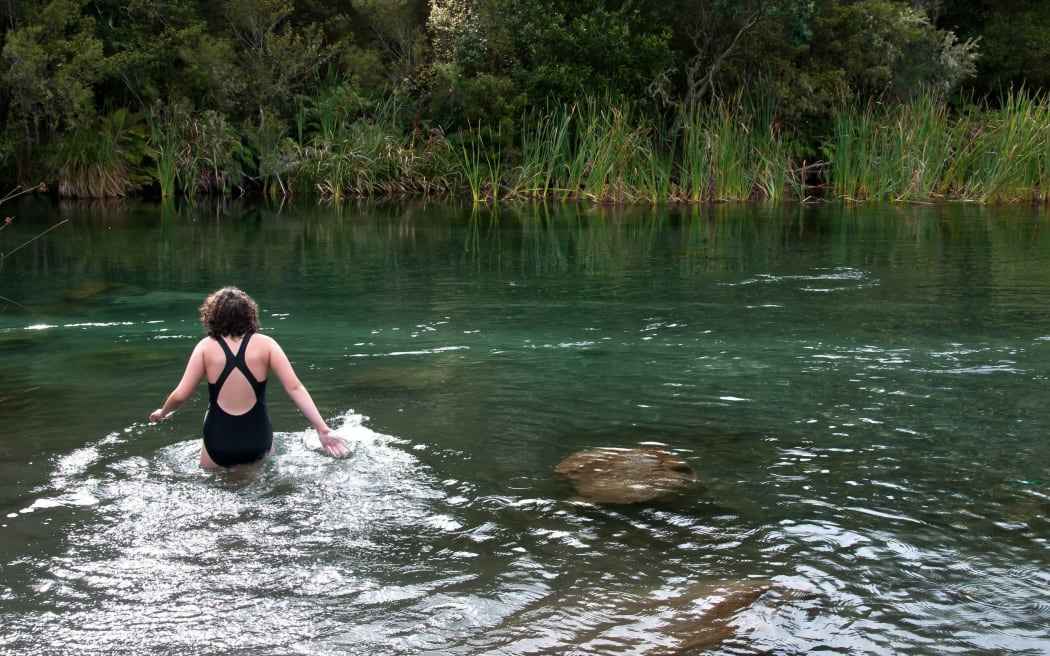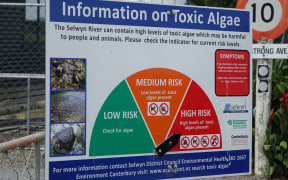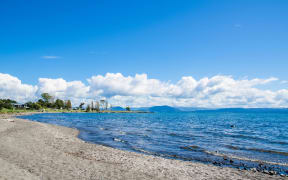The government's new target of having 90 percent of the country's waterways swimmable by 2040 strikes the right balance, Prime Minister Bill English says, but critics say it does not go far enough.

Photo: 123rf.com
The government unveiled its new policy, which includes changes to water quality guidelines, in Auckland today.
Environment Minister Nick Smith said the cost of the proposal to the government, farmers and councils was estimated to be $2 billion over the next 23 years.
"This ambitious plan to improve the water quality in our lakes and rivers recognises that New Zealanders expect to be able to take a dip in their local river or lake without getting a nasty bug," he said.
The target is based on meeting the swimmable water quality standard at least 80 percent of the time, in line with European and US definitions.
Mr English said cleaning up freshwater was a complex issue, but hugely important to New Zealand's economy, and the government was taking a balanced approach.
"If you've got a waterway that's been accumulating poor quality for decades, then you're not going to reverse it that quickly. Again, we're looking for the balance. There's some idealists that believe that you could achieve freshwater standards immediately at any cost. We don't think that's correct. I don't think you could do it, even if you wanted to."
Freshwater ecologist Mike Joy told RNZ News there had been a "subtle shifting of the goalposts" for water quality, which could allow more faecal matter in river and lake water now deemed swimmable.
He said there was now a one in 20 chance of getting campylobacter swimming in an river rated "excellent" by the Ministry of the Environment.
Green Party water spokesperson Catherine Delahunty said Prime Minister Bill English had simply re-labelled the standards.
She said what was once only safe for wading was now to be considered safe for swimming.
"By saying that a river with a grade of 'excellent' can be so polluted that one person in 20 gets sick from a waterborne disease, Bill English is deceiving our kids and grandkids, who are missing out on clean rivers.
"Bill English can dress up these changes as conceding to New Zealanders' demands for clean water, but he's just shifted the goalposts."
Forest and Bird chief executive Kevin Hague agreed, saying all the government had done was essentially change the definition of swimmability, from what was currently defined as wadeability.
Dr Smith said, if the new standard was met, New Zealand would have the highest standard of freshwater in the world.
He said the plan would be backed up by regulations requiring stock to be fenced out of waterways, new policy requirements for regional councils to strengthen their plan rules on issues such as sewage discharges and planting riparian margins, a new freshwater improvement fund and new maps that identified where improvements were needed.
"It will make us a world leader in water quality standards for swimming, and that's important for New Zealand's growing tourism industry. It will return our rivers and lakes to a standard not seen in 50 years while recognising that our frequent major rainfalls mean a 100 percent standard is not realistic."
Doctors, iwi leaders and dairy industry react
The Rural General Practice Network, which represents rural doctors and nurses, told Checkpoint with John Campbell 2040 was far too late for the country's rivers to be up to swimming standard.
The network's chair, Sharen Hansen, said freshwater should never have been allowed to degrade to the state it was in now.
"We shouldn't have a situation where our waters are barely wadeable, let alone not-swimmable or the water can't be drunk by livestock or animals. This is not right. The government has been slow in making changes that stop the progression of these rivers deteriorating."
In a statement, Freshwater Iwi Leaders Group spokesperson Rahui Papa said the policy was an improvement but did not go far enough in putting the environment first.
"If the decision-makers are required to balance the economic drivers against environmental in terms of water quality, the wai will always lose, that is our current position and we need transformational change."
Dairy New Zealand, in its reaction to the announcement, said the industry welcomed the government's plan.
"The on-farm fencing requirements in the new rules have already been met by 97.1 percent of dairy farmers around the country, and the target by May, a month ahead of the new requirements, is to be 100 percent ... This means that right now very few dairy cattle have any access to waterways, and in just two months' time no dairy cattle - that's zero dairy cattle - should have access to waterways on our farms."
This afternoon's announcement came ahead of the National Party's Blue-Greens Forum in Auckland this weekend.





